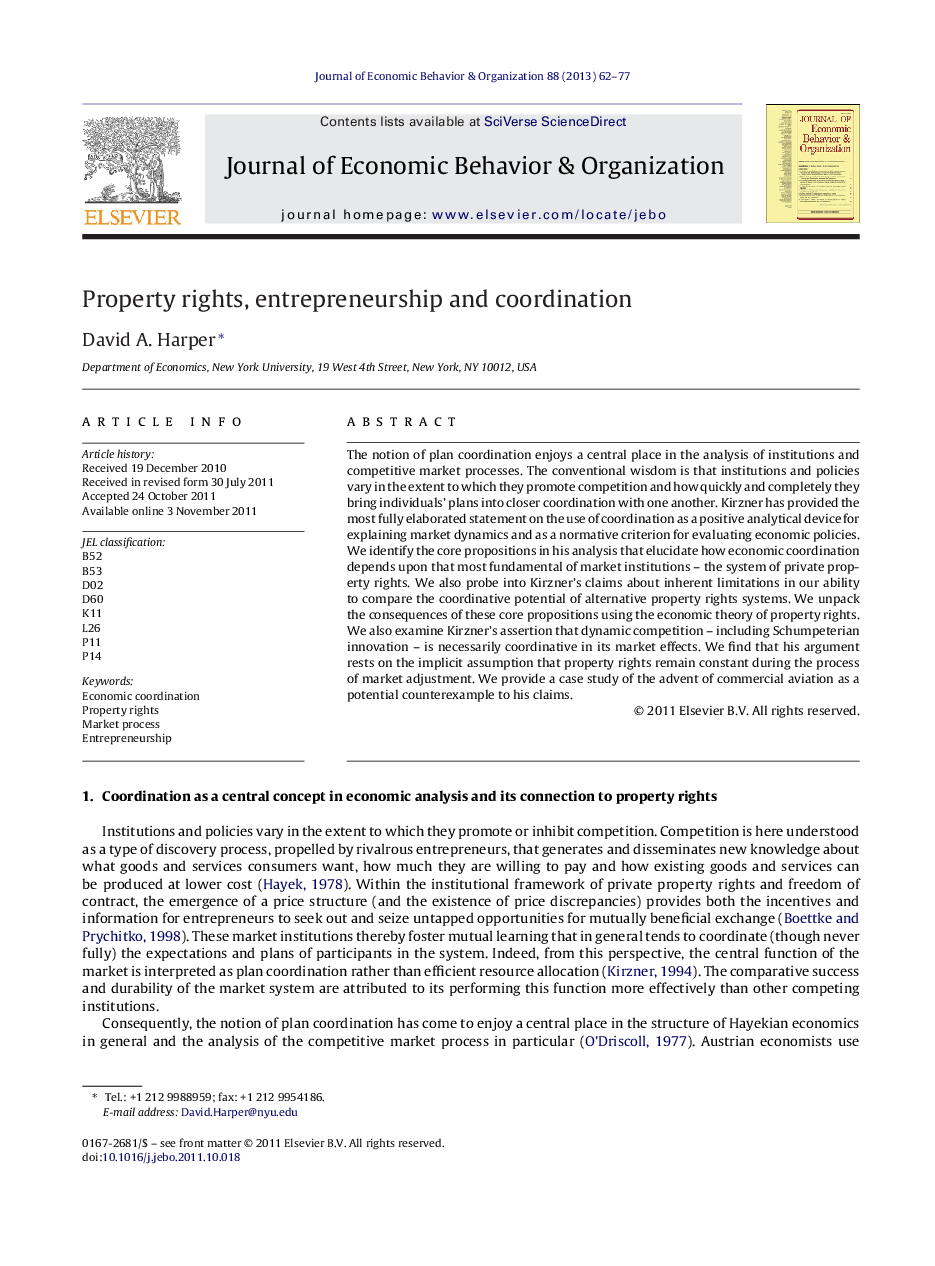| Article ID | Journal | Published Year | Pages | File Type |
|---|---|---|---|---|
| 883742 | Journal of Economic Behavior & Organization | 2013 | 16 Pages |
The notion of plan coordination enjoys a central place in the analysis of institutions and competitive market processes. The conventional wisdom is that institutions and policies vary in the extent to which they promote competition and how quickly and completely they bring individuals’ plans into closer coordination with one another. Kirzner has provided the most fully elaborated statement on the use of coordination as a positive analytical device for explaining market dynamics and as a normative criterion for evaluating economic policies. We identify the core propositions in his analysis that elucidate how economic coordination depends upon that most fundamental of market institutions – the system of private property rights. We also probe into Kirzner's claims about inherent limitations in our ability to compare the coordinative potential of alternative property rights systems. We unpack the consequences of these core propositions using the economic theory of property rights. We also examine Kirzner's assertion that dynamic competition – including Schumpeterian innovation – is necessarily coordinative in its market effects. We find that his argument rests on the implicit assumption that property rights remain constant during the process of market adjustment. We provide a case study of the advent of commercial aviation as a potential counterexample to his claims.
► We address questions regarding connections between coordination and property rights. ► Why are property rights important to the coordination function of markets? ► What constitutes an exogenous change in property rights? ► What agreement among agents’ expectations over property is required for coordination? ► How can entrepreneurship and technological innovation induce property rights changes?
